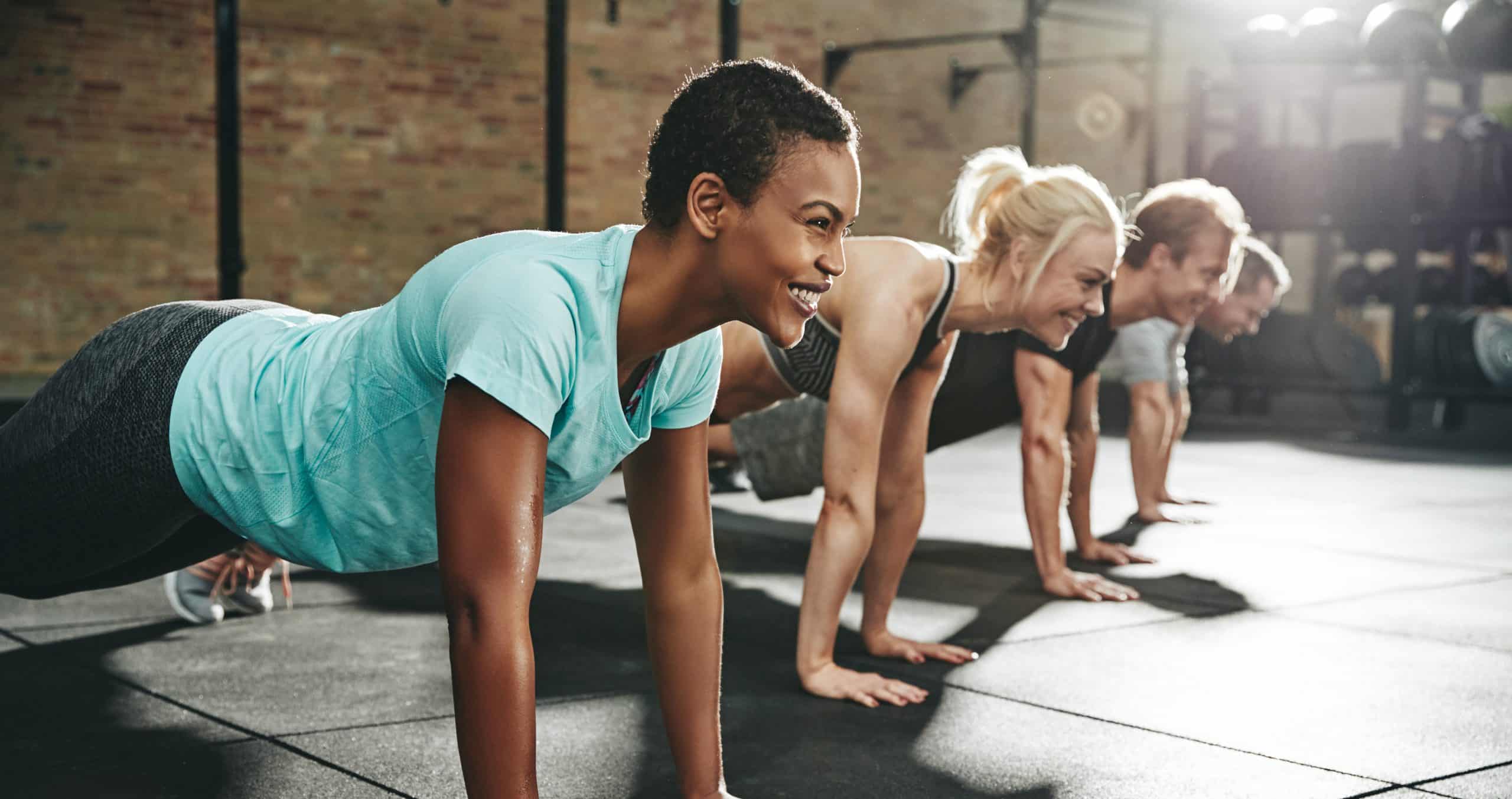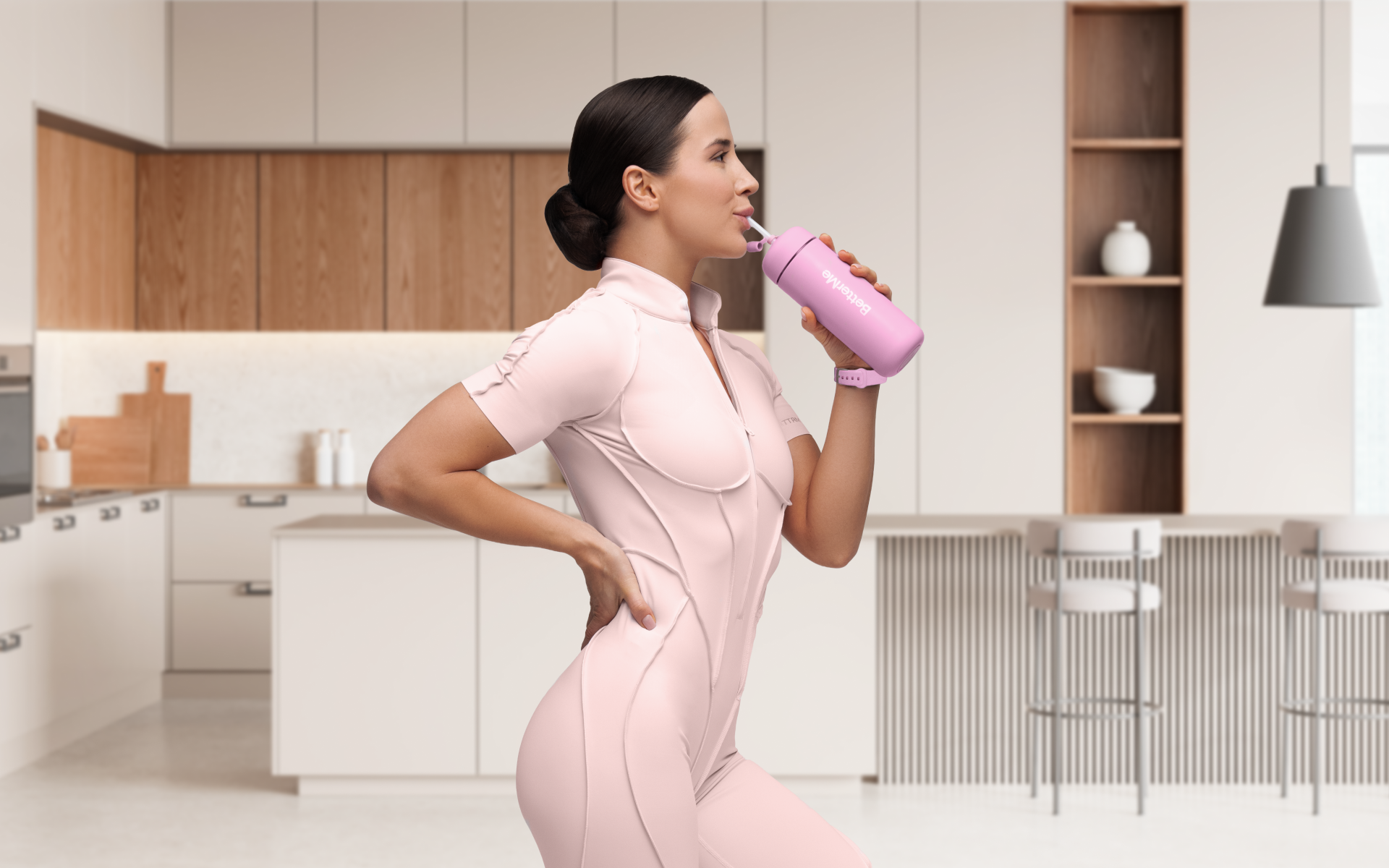When we say we’re physically healthy, what do we mean? That we’re free from illness or injury? Or is there more to it than that?
Physical health refers to the overall state of your body – from how well your organs are functioning to how strong and flexible your muscles are. It includes aspects such as nutrition, exercise, sleep, hygiene, and disease prevention.
Essentially, physical health encompasses all the choices you make that affect your body’s ability to function optimally. Knowing exactly what physical health is and why it’s important can help you take better care of your body and live a happier, more fulfilling life.
Here’s a quick breakdown of the key components of physical health and why each one is essential:
What Is Physical Health?
Physical health is one of the five main dimensions of health, alongside mental, emotional, social, and spiritual health. It’s a multifaceted concept that involves your body’s structural, functional, and physiological aspects (18).
- Structural health refers to the physical makeup of your body – from bones to organs to muscles.
- Functional health refers to how well these structures are working together to perform essential bodily functions such as breathing, digestion, and movement.
- Physiological health is about maintaining balance in your body’s internal systems through processes such as hormone regulation and immune responses.
Physical health isn’t just about being free from disease or injury, it’s also about having the ability to perform daily tasks without experiencing pain or discomfort. This includes everything from walking up stairs to participating in sports or hobbies you enjoy.
Further, physical health is not a static state but rather a continuous process that requires ongoing maintenance and care.
BetterMe: Health Coaching app is a foolproof way to go from zero to a weight loss hero in a safe and sustainable way! What are you waiting for? Start transforming your body now!
Why Is Physical Health So Important?
Physical health plays a crucial role in your overall well-being and quality of life. Here are some reasons why it’s so important:
Better Immune Function
Your immune system is your body’s defense against infections. When you maintain your physical health through nutrition, regular exercise, and adequate sleep, you bolster your immune system. This helps you fight off illnesses more effectively and recover more quickly when you get sick. Plus, a strong immune system can also reduce the severity of common colds and flu (1).
Prevention of Chronic Illness
Maintaining good physical health can significantly reduce the risk of developing chronic diseases such as heart disease, diabetes, and certain cancers. By making healthy lifestyle choices, you can prevent these illnesses before they even occur. For example, eating a balanced diet and exercising regularly can lower your risk of heart disease (2).
Improved Cognitive Function
Believe it or not, taking care of your body helps your brain too. Regular physical activity has been linked to improved cognitive functions such as memory, attention, and problem-solving. Exercise encourages the growth of new brain cells and improves blood flow to the brain, making it easier for you to think clearly and make decisions (3).
Improved Mental Health
Physical health and mental health are interconnected. When you take care of your body, it can have a positive impact on your mental well-being. For example, regular exercise has been shown to reduce symptoms of depression and anxiety (4). Similarly, getting enough sleep and proper nutrition can also improve your mood and cognitive function (2).
Enhanced Physical Performance
Good physical health can help you perform better in your daily activities and any physical tasks you undertake. Whether it’s running a marathon or just running errands, having strong muscles and a well-functioning cardiovascular system makes everything easier (5).
It also means that your endurance levels are higher, so you can stay active for longer without feeling exhausted. This can lead to a more fulfilling lifestyle and better overall physical performance.
12 Steps to Stay Healthy Physically
Staying healthy physically requires an all-round approach that encompasses various aspects of your daily life(2). Here are 12 steps to help you maintain your physical health:
- Eat a balanced diet that is rich in fruits, vegetables, whole grains, lean protein, and healthy fats.
- Stay hydrated by drinking enough water throughout the day.
- Exercise regularly – aim for at least 30 minutes of moderate to vigorous activity every day.
- Get enough sleep – adults need 7-9 hours of sleep per night on average.
- Minimize stress through relaxation techniques such as meditation or yoga.
- Maintain good personal hygiene by washing your hands regularly and practicing safe sex habits.
- Avoid harmful substances such as tobacco, excessive alcohol consumption, and illegal drugs.
- Get regular check-ups and screenings from your healthcare provider.
- Manage any chronic health conditions you may have, such as diabetes or heart disease.
- Protect yourself from the sun by wearing sunscreen and protective clothing when you’re outdoors.
- Practice safe habits to prevent accidents and injuries, such as using a seatbelt or wearing a helmet when engaging in physical activities.
- Prioritize self-care and make time for activities that bring joy and relaxation into your life.
We’ll review each of these steps in more detail in the following sections.
1. Eat a Balanced Diet
What you eat fuels your body, so it’s important to choose foods that provide the nutrients you need. A balanced diet includes a variety of fruits, vegetables, whole grains, lean proteins, and healthy fats. These foods offer essential vitamins and minerals, support immune function, and provide energy.
Research supports that diets rich in these components can lower the risk of chronic diseases (6). To implement this, try filling half your plate with fruits and vegetables at each meal, choosing whole grains over processed ones, and incorporating lean proteins such as fish or beans.
We’ve discussed how to add whole foods to your diet effectively in our Minimalist Diet blog.
2. Stay Hydrated
Water is essential for almost every bodily function, from regulating temperature to transporting nutrients. Staying hydrated helps maintain energy levels, supports digestion, and keeps your skin looking healthy (7).
Studies have shown that adequate hydration can improve cognitive performance and mood. Aim to drink about eight glasses of water a day (7). Carry a reusable bottle with you as a reminder and consider adding slices of fruit to your water for a flavorful twist.
3. Exercise Regularly
Physical activity is one of the best things you can do for your health. Regular exercise strengthens your heart, boosts your mood, and helps control weight. The CDC recommends at least 150 minutes of moderate-intensity exercise per week (8).
Research highlights that consistent physical activity can reduce the risk of many chronic diseases (8). Start by finding an activity you love, whether it’s walking, cycling, or dancing, and set small, achievable goals. Incorporate movement into your day, such as taking the stairs instead of the elevator, to build a sustainable routine.
We’ve compiled safe and low-impact yoga exercises for older adults in our Yoga Chair Exercises for Seniors article.
4. Get Enough Sleep
Sleep is when your body repairs itself, so getting enough rest is essential. Adults need 7-9 hours per night. Proper sleep helps improve mood, cognitive function, and physical performance (9).
Research has shown that poor sleep is linked to a higher risk of heart disease and obesity (9). Create a bedtime routine by going to bed at the same time each night, keeping your room dark and cool, and avoiding screens before bedtime.
In our previous blog post, Social Media And Physical Health, we discussed the effects of social media and excessive screen time on your health.
5. Minimize Stress
Chronic stress can take a toll on your physical health, leading to issues such as high blood pressure and weakened immune function (10). Incorporating relaxation techniques such as meditation, deep breathing exercises, or yoga can help manage stress levels.
Studies have found that regular mindfulness practices can lower stress hormones and improve overall well-being (11). Find a quiet space to practice mindfulness, even if it’s just for five minutes a day, and gradually increase the duration as you become more comfortable.
Whether you’re a workout beast or just a beginner making your first foray into the world of fitness and dieting – BetterMe has a lot to offer to both newbies and experts! Install the app and experience the versatility first-hand!
6. Maintain Good Hygiene
Good hygiene is a simple yet effective way to prevent illness. Regular hand washing, dental hygiene, and safe sex practices are part of this. It helps reduce the spread of infections and keep your body free of harmful bacteria and viruses (12).
Following guidelines from health organizations can lower the risk of disease transmission. Make it a habit to wash your hands thoroughly for at least 20 seconds, brush and floss daily, and use protection during sexual activities (12).
7. Avoid Harmful Substances
Steering clear of harmful substances such as tobacco, excessive alcohol, and illegal drugs is essential for maintaining good health. These substances can lead to severe health issues such as lung disease, liver damage, and addiction (13).
Numerous studies have shown the negative impact of these substances on overall health (13). If you struggle with substance use, seek support from healthcare providers or support groups. Replace harmful habits with healthier alternatives, such as finding new hobbies or exercise to keep you engaged.
8. Get Regular Check-ups
Regular check-ups allow healthcare providers to detect health issues early, often before any symptoms appear. Routine screenings can prevent serious illnesses and help manage existing conditions effectively.
Research has consistently shown that preventive healthcare significantly reduces the risk of chronic diseases (14). Schedule annual visits with your doctor and follow their recommendations for screenings based on your age and health status. Keep a health journal to track any changes and discuss them with your provider.
9. Manage Chronic Conditions
Managing chronic conditions such as diabetes or heart disease requires ongoing attention to prevent complications (15). This involves medication adherence, monitoring health markers, and lifestyle adjustments.
Studies have indicated that effective management of chronic diseases can enhance life quality and prolong life (15). Work closely with your healthcare team to develop a personalized management plan. Use tools such as apps or diaries to track your condition and stay proactive in your care.
10. Protect Yourself from the Sun
Exposure to UV rays can lead to skin cancer and premature aging (16). Protect yourself by wearing sunscreen, protective clothing, and seeking shade during peak sun hours.
Research highlights the effectiveness of these measures in reducing skin cancer risk (17). Apply broad-spectrum sunscreen with an SPF of at least 30, wear a wide-brimmed hat, and seek shade whenever possible. Reapply sunscreen every two hours, especially after swimming or any activity that makes you sweat.
11. Prevent Accidents and Injuries
Injury prevention is essential for maintaining physical health. Use seatbelts, helmets, and appropriate safety equipment during activities. Studies have shown that these measures significantly reduce the risk of serious injuries.
Always wear a seatbelt in vehicles, use helmets when cycling or participating in contact sports, and follow safety guidelines for any activity. Create a safe home environment by removing hazards and installing smoke detectors.
12. Prioritize Self-Care
Self-care is about taking time for yourself to relax and recharge. Engage in activities that bring you joy and relaxation, such as reading, hobbies, or spending time with loved ones. Research has suggested that self-care lowers stress and improves mental health.
Incorporate self-care into your daily routine by setting aside a few minutes for a calming activity or scheduling regular ‘me time’ each week. Recognize the importance of rest and leisure in maintaining overall health.
By following these steps, you’ll be well on your way to achieving and maintaining physical health. Each step is a building block toward a healthier, more fulfilling life.
Read more: Easy Somatic Exercises for Mental Health: Best Practices for Beginners
FAQs
What are the three types of physical health?
The three main types of physical health are structural, functional, and physiological. Structural health refers to the integrity and proper functioning of your body’s structures, such as bones, muscles, and organs.
Functional health focuses on how well your body performs daily tasks and activities. Physiological health encompasses vital bodily functions such as heart rate, blood pressure, and hormone levels.
What are physical health needs?
Physical health needs include proper nutrition, regular exercise, adequate sleep, stress management, hygiene practices, and preventive healthcare. Meeting these needs is essential for maintaining overall physical well-being and preventing illness (2).
How does physical health affect mental health?
Good physical health is vital for maintaining good mental health. Exercise releases endorphins that can improve mood and reduce symptoms of anxiety and depression (4). A balanced diet provides essential nutrients for brain function, while proper sleep promotes emotional stability and cognitive functioning (6),(9).
Why is physical well-being important?
Physical well-being is essential for living a healthy, fulfilling life. It allows you to perform daily tasks and activities with ease and reduces the risk of developing chronic diseases. Good physical health also positively impacts mental and emotional well-being, which leads to a better quality of life overall (2).
The Bottom Line
Physical health is about much more than just avoiding illness or injury. It’s an essential aspect of your overall well-being that involves taking care of your body through proper nutrition, exercise, sleep, and disease prevention. By understanding what physical health consists of and why it’s important, you can make informed decisions to improve and maintain your physical health for a happier and healthier life.
DISCLAIMER:
This article is intended for general informational purposes only and does not serve to address individual circumstances. It is not a substitute for professional advice or help and should not be relied on for making any kind of decision-making. Any action taken as a direct or indirect result of the information in this article is entirely at your own risk and is your sole responsibility.
BetterMe, its content staff, and its medical advisors accept no responsibility for inaccuracies, errors, misstatements, inconsistencies, or omissions and specifically disclaim any liability, loss or risk, personal, professional or otherwise, which may be incurred as a consequence, directly or indirectly, of the use and/or application of any content.
You should always seek the advice of your physician or other qualified health provider with any questions you may have regarding a medical condition or your specific situation. Never disregard professional medical advice or delay seeking it because of BetterMe content. If you suspect or think you may have a medical emergency, call your doctor.
SOURCES:
- The Acquired Immune System (2004,cell.com)
- Healthy living (2024,sahealth.sa.gov.au)
- Effects of Physical Exercise on Cognitive Functioning and Wellbeing: Biological and Psychological Benefits (2018,nih.gov)
- Exercise and mental health (2021,betterhealth.vic.gov.au)
- Real-Life Benefits of Exercise and Physical Activity (2020,nih.gov)
- Benefits of Healthy Eating for Adults (2024,cdc.gov)
- Importance of Hydration (n,d,hhs.texas.gov)
- Physical Activity for Adults: An Overview (2023,cdc.gov)
- Sleep is essential to health: an American Academy of Sleep Medicine position statement (2021,jcsm.aasm.org)
- Stress (2023,who.int)
- Mindfulness Is Associated With Lower Stress and Higher Work Engagement in a Large Sample of MOOC Participants (2021,frontiersin.org)
- About Hygiene (2024,cdc.gov)
- Substance Abuse (2024,who.int)
- Unveiling the Significance and Challenges of Integrating Prevention Levels in Healthcare Practice (2023,nih.gov)
- Thriving Beyond Diagnosis: The Art of Chronic Disease Management (2023,coordinatingcenter.org)
- Health Effects of UV Radiation (2024,epa.gov)
- Protect Yourself, Family and Pets from Excessive Ultraviolet (UV) Radiation (n,d,weather.gov)
- Physical Health and Education: A Life-Long Journey (2024,ucumberlands.edu)











